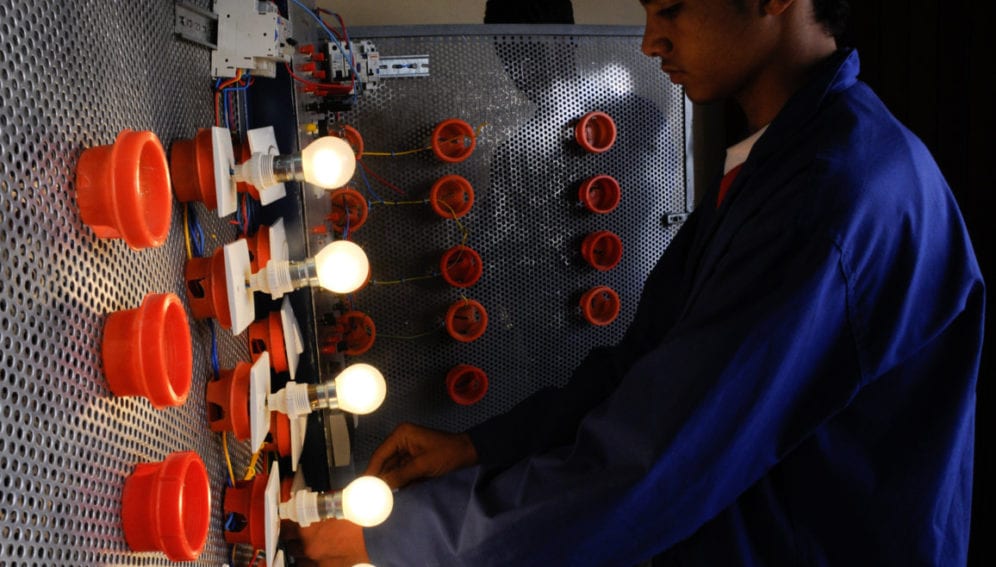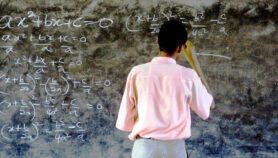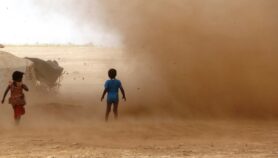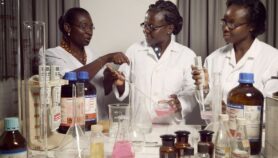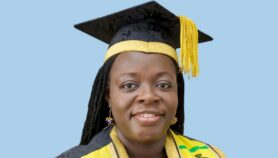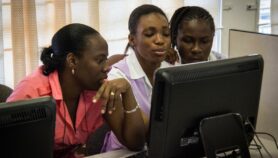By: Ochieng’ Ogodo
Send to a friend
The details you provide on this page will not be used to send unsolicited email, and will not be sold to a 3rd party. See privacy policy.
[RABAT, MOROCCO] Making the much needed leaps in sustainable socioeconomic progress for now and posterity in Africa will require prioritising capacity building in science, technology and innovation (STI) in the higher education sector, a forum has heard.
Burton Mwamila, vice-chancellor of Tanzania-based Nelson Mandela African Institute of Science and Technology, told the Second Ministerial Forum on Science, Technology and Innovation (STI) in Africa, last week (15-17 October) in Morocco that the continent has less than 100,000 scientists and engineers for each one million people.
“We have to invest more in value in addition to human capital in STI for us to develop our ability to generate solutions to problems such as the current Ebola epidemic in West Africa,” Mwamila told delegates at the forum.
According to Mwamila, such investments would create science literacy even among those outside science because expert knowledge will be available in their immediate environs. This, he added, would also increase the continent’s ability to tap into the massive wealth of science from the developed world for domestication.
“We have to invest more in value in addition to human capital in STI for us to develop our ability to generate solutions to problems such as the current Ebola epidemic in West Africa.”
Burton Mwamila, Nelson Mandela African Institute of Science and Technology, Tanzania
“The continent also lacks STI policies and legal frameworks to facilitate the translation of research into actions like was the case with Lagos Plan of Action (LPA),” Mwamila said. LPA was a blueprint formulated and adopted by 50 African countries at Lagos, Nigeria, in 1980, to foster long-term economic development.
Sonia Bahri, chief of section for science policy and capacity building of the United Nations Education, Scientific and Cultural Organization (UNESCO), said Africa needs to have more scientists and engineers to address her challenges.
“Although progress is being made, there are still huge gaps and there is [a] need to do more both at the intermediate and higher education levels in building [capacity of] researchers and technicians in STI,” Bahri pointed out. “We need to look at education holistically by creating critical mass of teachers for STI, beginning from the lower and middle levels of education. We must start early.”
She added that the training of people in such skills needs to be interdisciplinary, cutting across to other skills such as entrepreneurship.
“We need policies that create linkages between faculties like engineering and business departments at institutions of higher learning,” Bahri said, citing Burkina Faso as one of the places where UNESCO’s leadership is facilitating such capacity building focusing on linkages to help create a culture of science on the continent.
“The creation of the right infrastructures, policy frameworks and investments to promote STI and absorption of those trained as a means to socioeconomic growth for Africa is imperative,” she told SciDev.Net.
Zimbabwe for instance, Bahri stated, has excellent higher education system but lacks the capacity and plans to leverage absorption of graduates, and thus creating brain drain to Western countries. “For commercialisation, you need policies to ensure that a country benefits from research tools and products. You need to take them out of the laboratories to the markets,” she said.
Bahri also called for women’s access to scientific pathways, especially in physical sciences and engineering, noting that currently very few women are in these areas of science.
Mohammed Hassan, Science Initiative Group board member of the Regional Initiative in Science and Education, added that training and retention of quality human capacity in higher education to contribute to solving problems is a critical challenge in Africa.
“We need deliberate political and investment decisions to be able to address this. We need to promote physics and mathematics, and to retain those brains in Africa to help solve our problems,” he said.
This article has been produced by SciDev.Net's Sub-Saharan Africa desk.


